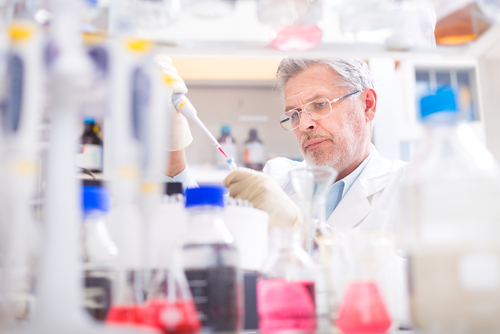Lost Function in Gaucher Cells Partially Restored by Coenzyme Q10, Researchers Say
Written by |

Coenzyme Q10 (CoQ), a naturally occurring antioxidant, partially restored the function of a cell model of Gaucher disease. These artificially produced cells can be used in the future to study the disease and may lead to potential treatments, according to new research.
The study, “Coenzyme Q10 partially restores pathological alterations in a macrophage model of Gaucher disease,” was published in the Orphanet Journal of Rare Diseases.
According to the authors, the results of the study indicate that targeting mitochondria function (the organelle that produces energy inside the cell and seems to be damaged in GD) and oxidative stress (damage due to oxidation) by CoQ can have a positive effect on the disease characteristics of Gaucher cells. Moreover, the lab-grown Gaucher macrophages (immune cells mainly affected by GD) provide reliable cellular models that can be used to investigate disease progression and new therapies for this condition.
There are three types of Gaucher disease. Types 2 and 3 are associated with brain disease, while type 1 is not. The condition is caused by a defect in the enzyme beta-glucocerebrosidase (GCase), whose function is to break down glucosylceramide (GlcCer), a component of animal muscle and nerve cell membranes. This leads to the accumulation of this molecule in cells, especially in macrophages, which are specialized white blood cells that cleanse the body of unwanted substances.
Two organelles inside these cells have been shown to be defective in Gaucher disease: lysosomes, which break down unwanted substances, and mitochondria, which provide the energy to do that job.
One of the roles of Coenzyme Q10 is to break down harmful chemicals formed naturally in the mitochondria.
In this study, researchers produced cells artificially in the laboratory which they called “Gaucher macrophages” because they showed similar defects to those observed in cells of patients. When they were treated with CoQ, some of these defects were partly, but not completely, corrected. Importantly, the chemical improved the negative effects of the molecule that accumulates in Gaucher disease, GlcCer.
“Studies in a suitable animal model may provide pre-clinical data, which may support clinical trials with CoQ given in human patients with GD,” the researchers wrote.
“These results, however, should be interpreted with caution since the positive effects of CoQ in vitro may not have an equivalent beneficial effect when translated to human clinical trials, as it has been recently demonstrated in two large trials in Parkinson’s and Huntington’s diseases,” they added.



